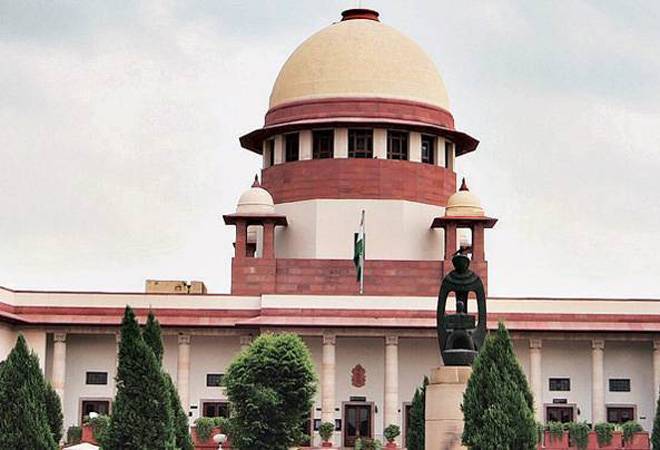New Delhi: The All India Muslim Personal Law Board (AIMPLB) moved Monday the Supreme Court seeking impleadment in petitions challenging constitutional validity of polygamy and ‘nikah halala’ practised among Muslims.
The application has been filed to oppose a batch of petitions on which the apex court had in 2018 issued notices to the Centre and other stakeholders while referring the matter to a five-judge Constitution bench.
While polygamy allows a Muslim man to have four wives, ‘nikah halala’ stipulates that a Muslim woman, who wants to remarry her husband after divorce, has to first marry another man and get divorce from him after consummating the marriage.
The two issues had arisen when the apex court was dealing with the practice of triple talaq. By a 3:2 verdict, a five-judge Constitution bench August 22, 2017 had banned the 1,400 year-old practice among Sunni Muslims saying it was against the basic tenets of the Holy Quran and violated the Islamic law Shariat.
The top court had then made it clear that it would deal separately with the issues of polygamy and ‘nikah halala’ at a later stage.
The AIMPLB plea Monday said the apex court has already dealt with the issue of these practices in its verdict of 1997 in which it had declined to entertain the petitions.
“That personal laws do not derive their validity on the ground that they have been passed or made by a legislature or by other competent authority. The fundamental source of personal laws is their respective scriptural texts,” the AIMPLB plea said.
“The Mohammedan law is founded essentially on the holy Quran and the Hadith of the Prophet Mohammed and thus it can’t fall within purview of expression ‘laws in force’ as mentioned in Article 13 of the Constitution and hence its validity cannot be tested,” the plea further said.
The plea of the Personal Law Board said that Article 44 of the Constitution stipulates that the State shall endeavour to secure for the citizens a uniform civil code throughout the territory of India.
“It is submitted that Article 44, which envisages a Uniform Civil Code is only a directive principle of state policy and is not enforceable,” the plea stated.
Questioning the locus standi of BJP leader and advocate Ashwini Kumar Upadhaya for filing a PIL challenging polygamy and ‘nikah halala’ practices, the AIMPLB said that it is of the view that ordinarily, any person other than a member of a religious denomination should not be allowed to question the faith of another religious denomination.
“A member of a religious denomination belonging to that faith, in the event of any violation of their fundamental rights, only to the extent of a threat to life and liberty, may be permitted to seek the protection of the court and determine the issues of faith arising therefrom,” the petition pointed out.
PTI
